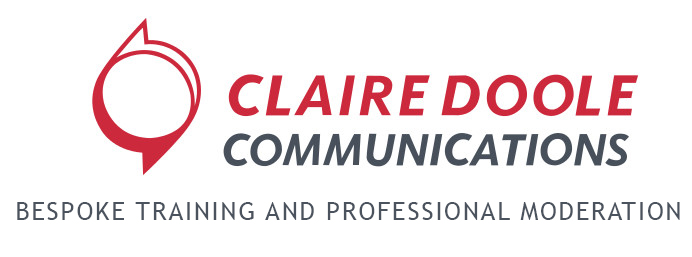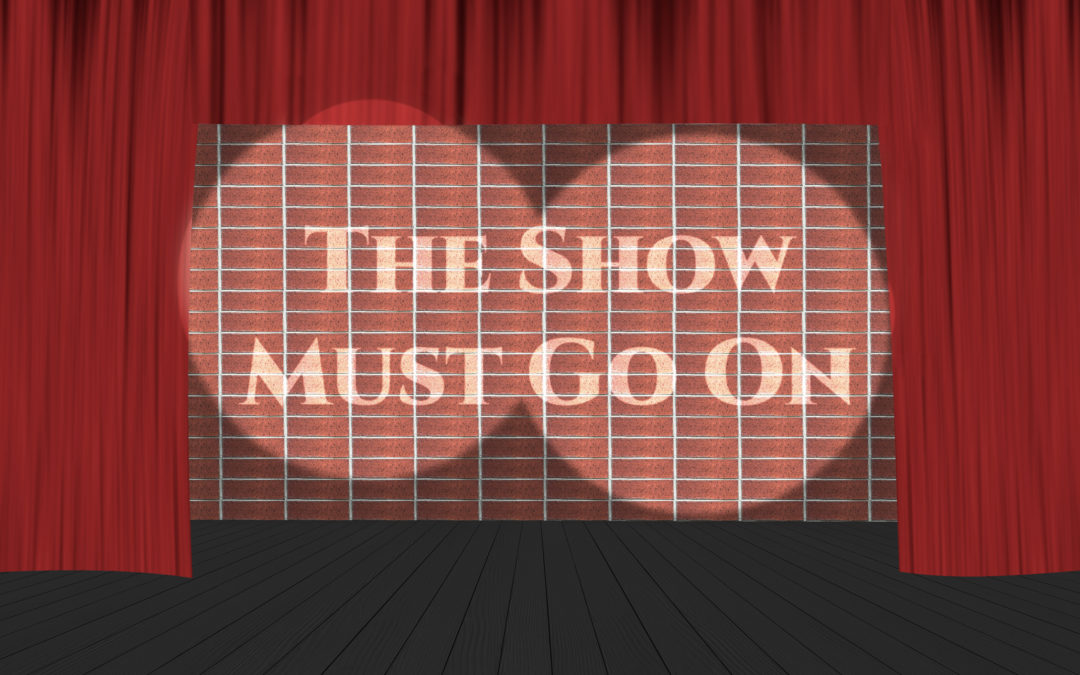
by Claire Doole | Apr 1, 2024 | Blog, Moderating
One of the key roles of a conference moderator is making sure that everything goes smoothly. Whatever happens, the show must go on, and the only person who can ensure this is the moderator who has the microphone.
Nothing as dramatic has happened to me as the famous incident back in the 1980’s when BBC newsreader Sue Lawley carried on reading the news when activists stormed the studio – one handcuffing herself to a camera and the other crouching below the newsreader’s desk!
However, here are a few conference shockers that I had to deal with and ensure the show went on…
The rollercoaster of technical chaos: At one event, we were eagerly awaiting the keynote speaker’s wisdom, only to be met with the dreaded “failed to connect” message not once, not twice, but three times on day one. The organisers refused to ask her to pre-record her remarks for day two and, predictably, day two didn’t fare any better! Again, we twice tried to connect, but our speaker remained elusive, leaving us hanging without a single word of her anticipated keynote.
But wait, there’s more! As we attempted to patch in speakers from every corner of the globe, it seemed like the universe conspired against us. Five consecutive no-shows! It was like a virtual game of hide-and-seek, and we were losing spectacularly.
Thankfully, amidst the chaos, the Secretary-General saved the day in the studio. With the lines in limbo, I seized the opportunity to pepper him with questions, keeping the show afloat amidst the technical tempest. Lesson learned: Always have a trusty sidekick in the studio, or risk being left high and dry, counting down the minutes— a lifeline we gratefully clung to later that day.
Although not before a high-level speaker who was moderating a panel failed to get her microphone working and with a few minutes notice, I had to moderate a discussion I knew little about while she apparently looked on highly frustrated.
Comedy of errors: A client decided to skimp on tech support, only allocating a measly half-hour for a two-day extravaganza. Cue chaos. As fate would have it, I found myself in a heated exchange with an online speaker who seemed convinced I was playing a game of mute-and-seek. “Unmute yourself!” she demanded, blissfully unaware that I was at the mercy of Zoom’s audio settings. The back-and-forth, or should I say, the dialogue of the deaf, dragged on endlessly, with no technician in sight to untangle the mess.
Lesson learned: When it comes to technical support, you can’t afford to skimp. Ideally, the moderator should be equipped with an earpiece, ready to receive guidance from the producer or director lurking behind the scenes. But when that fails, it’s time to whip out plan B: enter the WhatsApp group, a lifeline of communication when all else goes haywire.
Shocking panelists
Professional moderators know how to keep calm and carry on during the event. Unfortunately, though we have little influence over who is on stage with us.
Here are my top three shockers:
1) 10 people on a panel about putting beneficiaries at the heart of humanitarian response with only one beneficiary on the panel.
2) 8 male ambassadors – a manel – in which the organisers insisted I scripted the questions. Not one I have on my showreel.
3) 3 heads of international organisations talking about high-level humanitarian policy with 1 woman from a small local foundation, who had nothing to contribute apart from saying that she was listening and learning. She had been invited by the organisers who wanted to have a partnership with her foundation.
You will notice I published this blog on the 1 April – so how many of these do you think were April Fools?!
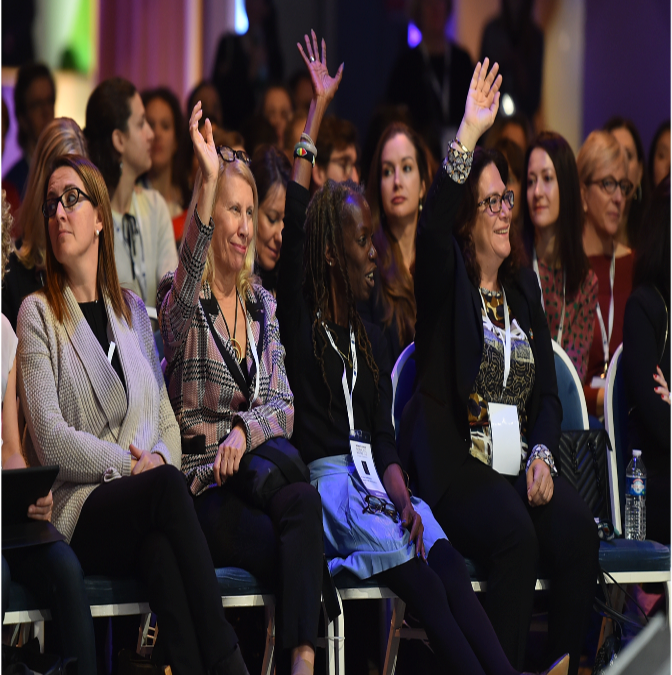
by Claire Doole | May 29, 2022 | Blog
Many people I know – both panelists and audience members – are wondering what is the point of panel discussions.
This is what I am told by the senior managers, leaders and experts I have been training in various communication skills.
It seems they are often too promotional, disorganised, lack focus and fail to deliver any new insights or engage the audience. In fact the audience takeaway seems to be at the bottom of the organisers priority list for a successful panel discussion
And ignoring the audience is having consequences as organisers tell me that fewer people are showing up for virtual, hybrid or in-person panels. It would appear that post pandemic we are all suffering from a case of “zoomitis” and thinking twice before we tune in or turn up to an event.
Putting the audience first
Organisers need to clearly articulate why they are organising the panel and the outcomes they want to achieve, including answering the question why the audience should attend?
Here are some questions that ensure a more audience-centric focus:
• Why is this topic important right now?
• What are the key challenges the audience is facing on this topic right now?
• What does the audience need to know?
• What does the audience want to know?
• What is the benefit to them? Why should they care?
By the way, these are the same questions you should ask when preparing a presentation. Presenting is all about the audience – and so is organising a panel discussion!
It is only once they have thought about their purpose and the audience that they should invite the speakers. Big names can be a draw, but they, like all panelists must be ready to address the issues raised in the panel and not see it as an opportunity to promote their organisation.
Engaging the audience
Most direct audience engagement usually happens during the audience Q&A. Unfortunately, this sometimes doesn’t happen because the moderator runs out of time, often because there are too many speakers are on the panel.
I feel that the Q&A is given short shrift, seen as an add-on rather as integral to the event. In my view, the audience should feel part of the discussion from the beginning to the end. The moderator, for example, can ask the audience’s view at the start of the panel with a raise of hands, or poll, as well as at certain moments during the discussion and can even ask for their opinion or response to a comment made by a speaker.
The moderator’s role is not only to ask the questions the audience wants asked – similar to that of a good journalist, but also to keep them in mind throughout the discussion.
If organisers and moderators take a more audience-centric approach to panel discussions, I am convinced that they will not only get better outcomes, but that the audience will turn up in droves for other events, they organise.
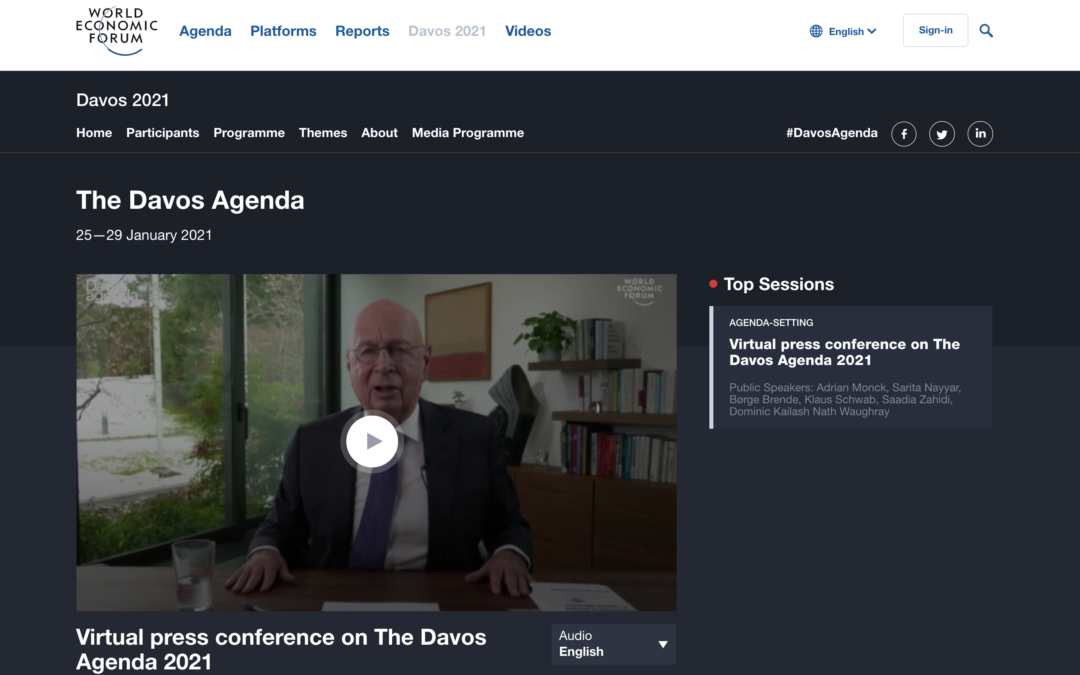
by Claire Doole | Jan 24, 2021 | Blog
This Monday the powerful icons of business, finance and a spattering of civil society will not meet in the Swiss ski resort of Davos for the annual World Economic Forum’s flagship meeting. Instead, they will meet virtually for a meeting billed as the Davos Agenda which will focus on rebuilding trust and shape the principles, policies and partnerships needed for 2021.
I am hoping the virtual meeting will also showcase and shape best practice in terms of organising virtual events. Many companies and organisations have made the shift from physical to digital events – recognising that producing a successful event is like producing a TV programme. As I wrote in my September blog, they must be shorter, more varied, more creative, better moderated and rigorously rehearsed.
But since then, it has become even more obvious that organisers are going to have to up their game if they are to counter the increasing challenges of high attrition rates.
Let me share some anecdotal evidence. Organisers are not getting the numbers as “zoom fatigue” sets in and attendees zoom out. In some instances, there are just too many virtual events. One communications director from an international organisation told me they organised 67 webinars last year – sometimes up to three a week– and had to make sure staff took part to ensure strong numbers.
This year, faced with budget cuts, international organisations and NGOs are scrambling for relevance with donors, which means the pandemic of virtual events shows no sign of slowing. However, they systematically risk forgetting the well-known saying in communications that less is more.
In the corporate world there are also challenges. I hear that some C-suite members are reassessing their attendance at virtual events as the opportunities to network and influence are limited. CEOs go to Davos after all mainly for the deals they can do in the corridors or on the ski slopes!
Other executives have told me that their companies are weighing up the benefits of sending staff to trade fairs as they are not getting the leads, despite the networking opportunities offered on some platforms. They complain about the business model of having to pay extra for networking and that these meetings are just not the same as the chance encounter over coffee! Some companies are even reducing or pulling out from sponsoring virtual events this year due to disappointing attendance figures.
What will change in 2021
Despite the challenges of virtual events, everyone agrees however that they are here to stay. They still offer the 4 C’s of convenience, cost, convening power (greater diversity and reach of speakers and attendees) and climate change impact.
However, given the limitations of the virtual world, the next race is on to replicate as closely as possible the experience of attending a physical conference.
In 2021 we will see two major changes –a move to larger scale hybrid events and the creation of platforms designed to augment reality and provide an enhanced nearly physically presenter user experience for those who’ can’t be on site.
Hybrid events are likely to become the new normal
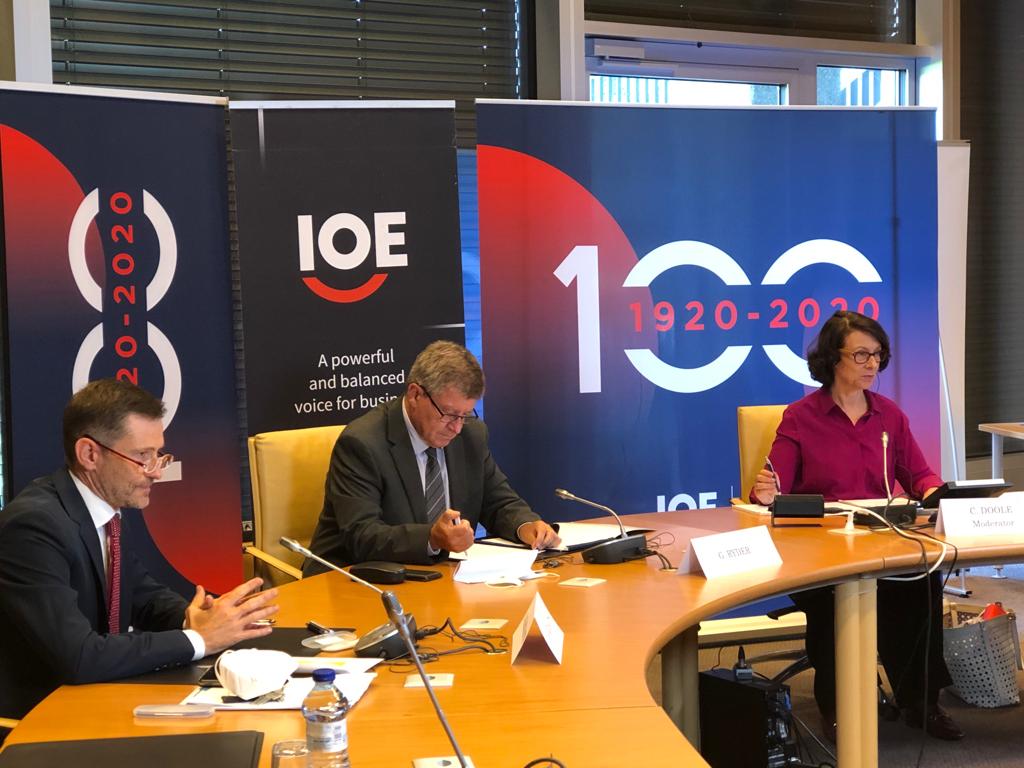
The reasons are obvious – hybrid events are more dynamic as they bring in the dimension of human contact, making discussing more interesting and emotional. Believe me, it is much easier to moderate a discussion when you can gauge body language and interject to drive the conversation forward. It also has the great advantage that even if speakers lose connectivity, you can keep the discussion flowing as you can turn to those with you in the studio!
Already, we are seeing on TV, presenters and guests appear in the studio as well as on screen, and some programmes and sports events now have a socially distanced live audience.
Next generation of platforms
Platforms are working hard to reduce any perceived inequality between those who are physically present and those joining virtually. Platforms like Lunchpool and Vsummits are for example developing networking features, allowing attendees to move from virtual table to virtual table and talk in small groups or one-on-one.
The challenge of hybrid events and using such platforms is cost, which might be prohibitive for those without deep pockets. The company that comes up with an inexpensive model for hybrid events that brings in new technologies from the gaming world and AI will be highly sought after – making such platforms as Zoom pro, MS Teams and Webex relics similar to the first iphone.
Virtual still has a place
Some organisations though will still opt for a fully virtual event for reasons of inclusivity, preferring the level playing field of speakers and audience all coming together virtually.
This week the Davos Agenda meeting should show us what is possible to achieve in the virtual world. I am looking forward though to finding out more about the hybrid event that the World Economic Forum is organising in Singapore in May as this could serve as a model for large scale hybrid events – the next step in our return to the new normal!
Claire moderates in the virtual world and can help you organise an event that attracts and retains your audience’s attention.
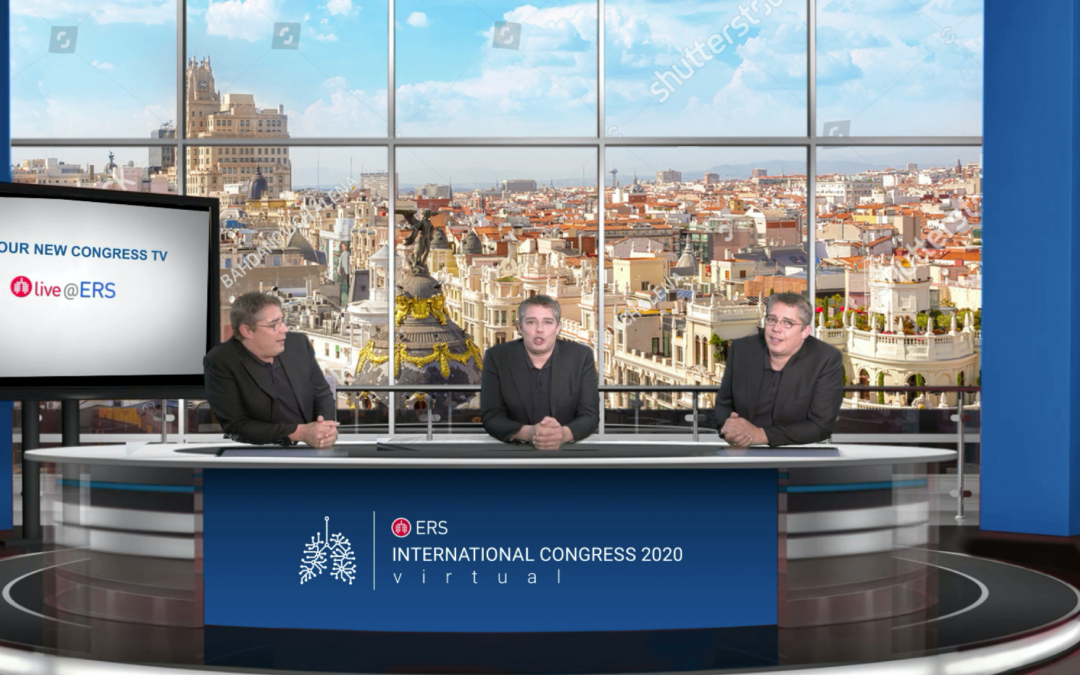
by Claire Doole | Nov 29, 2020 | Blog, Moderating
Many of you are moderating events and panel discussions in the virtual world. If you are an in-house moderator, you have an advantage over someone like myself in that you automatically know the subject area. However, that doesn’t mean that you can “rock up and just have a conversation” in the words of someone I coached recently in how to moderate at a virtual event!
Professional moderators may make it look effortless as they seamlessly transition from one speaker, subject area or segment to another, but it takes a lot of preparation to work out the editorial narrative of an event and the flow of a specific panel discussion.
In many respects in the virtual world, it is even harder for two main reasons:
1) It is more challenging to capture and hold the audience’s attention and;
2) Organizers are packing their events with too many speakers.
If you want to overcome these challenges and be a dynamic virtual moderator, have a look at some of my tips below:
Work with the organisers on event design
I run workshops and act as a consultant to organisations and companies on how to design an entertaining, participatory and insightful event. As an in-house moderator, however, you are well placed to influence the narrative and flow of the event from the start.
• Make sure organisers have made the shift from the real to virtual world and apply the principles of TV programme makers, namely short, varied and creative.
• Advise on the format. Blocks of speakers who present one after each other is overwhelming and potentially tedious for the audience. I have seen programmes where nine speakers make keynote speeches, presentations or remarks with no audience or moderator intervention for the first hour. Even two keynote speeches of 20 minutes each back to back before the audience Q&A is asking a lot of the audience.
• Limit the number of speakers in a panel discussion to no more than four. I have turned down panel discussions where there are seven speakers as it is impossible to generate a lively discussion of views. It goes without saying that it is frustrating for the panelists to be given so little time to get their points across and can certainly lead to information overload for the audience.
Prepare and deliver

Courtesy of the European Institute of Gender Equality
Virtual events require even more energetic moderation as you have to work harder to hold and retain the audience’s attention. Virtual event organisers are telling me how it is increasingly difficult to attract audiences due to “zoom fatigue”, but also how they see audience figures dive as soon as they lose interest.
• Prepare thoroughly. Whatever the format of your event – presentations, keynote speeches, interviews or panel discussions, you have to prepare by researching the latest findings and talking to your speakers to find out the points they want to make. This applies to in-house moderators just as much as to professional moderators like me.
• Interact with the audience as often as possible and ensure you leave enough time for audience questions throughout and at the end. In the virtual world this is easier as the questions are usually written, reviewed and collated for you unlike in the real world where people can make long rambling remarks or ask unclear questions.
• Manage time. This is a key component as people will leave if a segment or speaker goes on for too long. Similarly, if the event goes over time, you will find that many people have already moved onto their next Zoom call!
Having moderated many virtual and hybrid events in 2020, I know you have to be a more dynamic moderator in this environment. Unfortunately, even if you are naturally charismatic and a subject expert, you can’t just rock up as the moderator I recently coached soon realised!
If you or your co-moderators feel you would benefit from some coaching or group training in how to moderate at a virtual event in 2021, do get in touch.
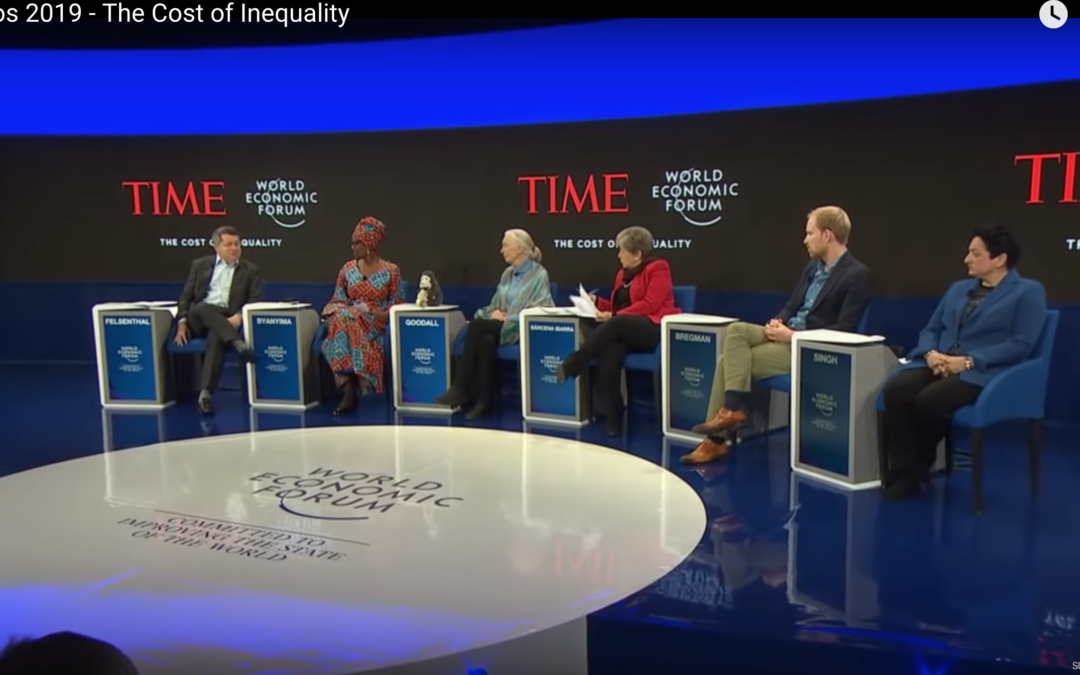
by Claire Doole | Feb 25, 2019 | Blog
How many of you attended this year’s gathering of the global elites at the World Economic Forum? If you were there, did you sit through any of the panel discussions? With the good and the great vying to be in the audience and on the podium, Davos panels are a hot, if pricey, event.
But how good are these discussions? Are they engaging, informative and thought-provoking?
Many a client has contacted me as a moderator saying they want a Davos-style panel discussion. In the conference/event industry, these panels with their star-studded line-up are obviously seen as the gold standard.
So, I decided to test this hypothesis and watch a panel in which Rutger Bregman, a Dutch historian, made headlines with his remarks about why no one at Davos was talking about the super rich avoiding paying taxes.
I watched the 1-hour session and was, to be frank, disappointed. Despite the expert and articulate speakers, there was no lively discussion. Although the title – the cost of inequality – was catchy, it was unclear the specific issues the panel was trying to address.
Instead, you got the tired format of each speaker giving opening remarks of 3 to 5 minutes followed by the moderator asking the panel in the exact same order a series a questions. The moderator failed to generate a discussion even when Bregman made his provocative comments on tax avoidance.
Admittedly, it is not easy with 5 speakers (3 to 4 is optimal) whose reason for being on the panel is not clear. Jane Goodall is an amazing primatologist, but is she really the right person to discuss the cost of inequality?
Fast-forward to 44.05, and you will hear one of the few members of the audience who got to ask a question, express surprise at the way the panel was created and remarking that it was extremely one-sided.
Tarnished gold
For me this panel did not meet the gold standard despite the excellent contributions of the Dutch historian and the executive director of Oxfam International.
All panels at Davos have star line-ups, but what they lack is a variety of formats and in many cases excellent moderators.
An exception this year was the panel on mental health matters with Prince William, Duke of Cambridge, and the Prime Minister of New Zealand, Jacinda Ardern, which was excellently moderated by a CNBC journalist.
Good TV journalists who know how to keep a conversation flowing and to time can make a big difference and breathe life into the most staid and familiar formats.
However overall, it would seem I am not alone in my disappointment at the standard of panels at Davos..
The Guardian concluded at the end of the 4-day talking shop that “Davos had lost its mojo” and that “the format – panel of experts – discussing the world’s problems looks tired”.
It may well be that Davos needs to be revamped as a forum – I have only ever attended as a journalist scurrying from one interviewee to the next.
However, the organisers armed with a dose of creativity could easily breathe new life into the panel format
Interactive and creative panel formats that work
I have always been impressed by the variety of formats used by the Women’s Forum for Economy and Society – which like the World Economic Forum has a main conference as well as regional conferences. One year they asked me to moderate three panels – all with different formats.
Panel 1 – Why are refugees only bad news? (A question in the title helps to focus the discussion). This was the classic Q and A format – with the moderator asking questions to 3 panellists and bringing in the audience.
Panel 2 – Why I am a feminist. The moderator interviewed the male CEO of Coca Cola, a self-declared feminist. Two female CEOs then joined the moderator on stage and started to ask him questions.
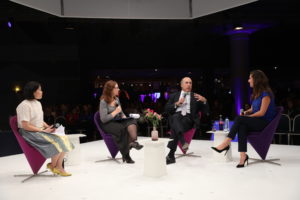
Panel 3 – Advancing women’s economic empowerment. The moderator launched a discussion with 2 speakers – then French presidential candidate, Emmanuel Macron, and the Canadian Minister for the Status of Women, Patty Hajdu. She then invited a third speaker – Arancha Gonzalez, Executive Director of the International Trade Centre – to join and ask any questions she had of the first two speakers.

Seating the audience in the round – the so-called fishbowl format – is excellent for interactivity. Another client added another twist by leaving an empty chair on the stage for members of the audience who were invited to ask questions to each speaker after the curated Q and A with the moderator.
So WEF, with your star speakers, revamped creative panel formats and dynamic moderators no doubt your 2020 sessions will be pure gold?

